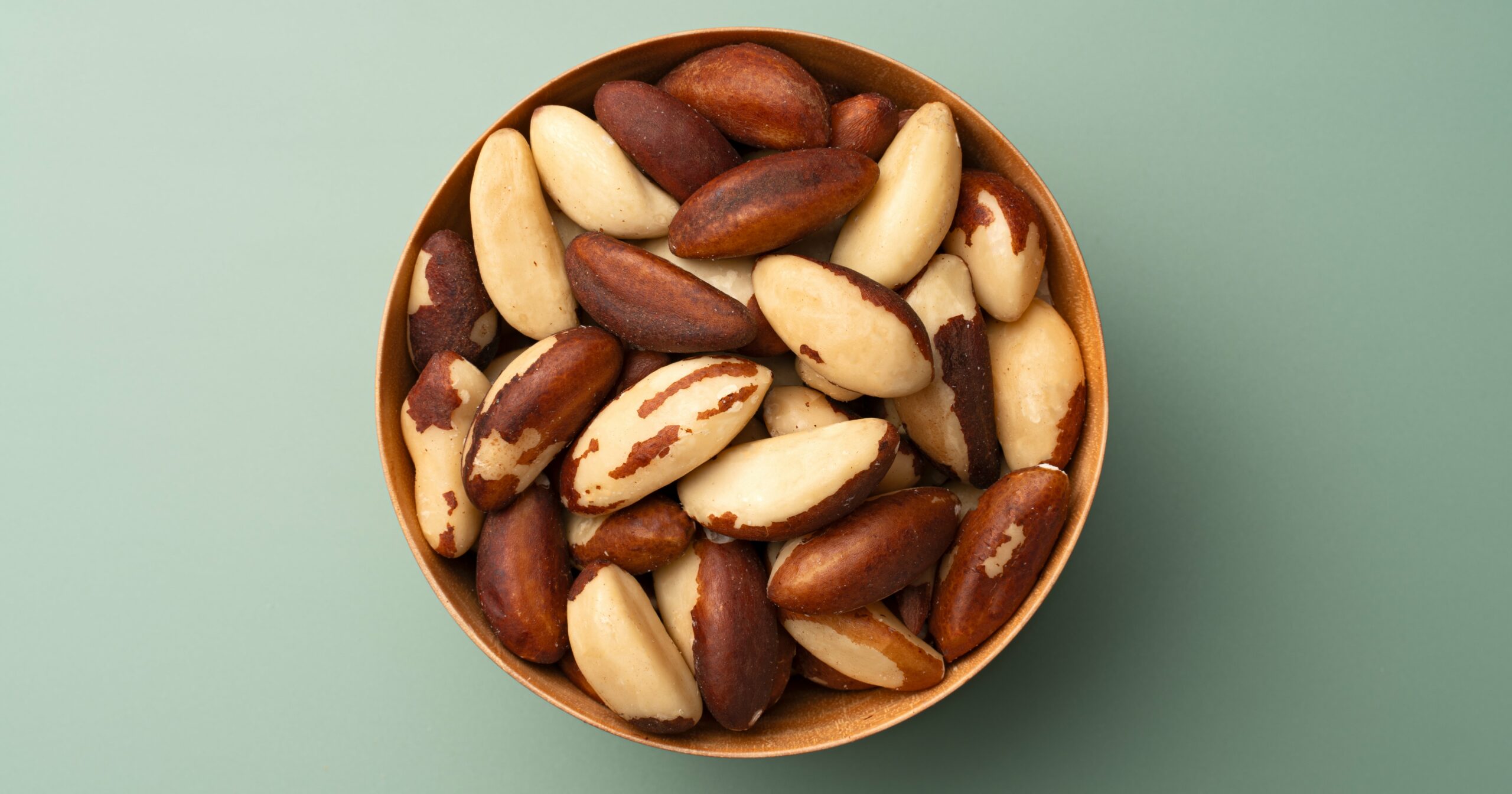If you’ve spent an extended amount of time on TikTok recently, you’ve likely seen countless videos encouraging you to add Brazil nuts to your diet. Many internet nutritionists explain that they contain selenium, which helps regulate the thyroid, reduce inflammation, give you a boost in antioxidants, promote brain health, and provide healthy fats – but that’s not all. Another claim is that they’re great for the skin and can help prevent acne.
While it might be tempting to rush to the nearest grocery store and start munching on these delicious nuts, as we all know, there are no quick fixes and you can’t believe everything you read online. To dive into the claim and uncover whether or not eating Brazil nuts can really help your skin, we spoke to two medical experts ahead.
Behind the Claim
If you’ve never had a Brazil nut before, they’re a relatively large, energy-dense tree nut native to the Amazon rainforest in Bolivia, Brazil, and Peru. Most often, their taste is described as quite buttery for a nut and they are rather filling. “Brazil nuts aren’t necessarily the most nutritious nut (almonds and walnuts are two of the best nuts for skin health), but they can be a valuable addition to the diet,” Ryan Turner, MD, a board-certified NYC dermatologist and cofounder of Trnr Skin, tells POPSUGAR.
Peter Lee, MD, FACS, a Los Angeles-based board-certified plastic surgeon, adds: “While some influencers on TikTok have ascribed improvement in their skin quality and texture to their consumption of Brazil nuts, it appears that the health effects of Brazil nuts supported by actual clinical studies arise from the high concentration of selenium that these nuts contain.”
The Benefits of Brazil Nuts For Skin
“Brazil nuts feature omega-3 and omega-6 fatty acids, which support the skin barrier by boosting its lipid levels,” Dr. Turner says. This helps the skin better retain water and provides enhanced protection against environmental aggressors. Additionally, this helps promote skin elasticity. While walnuts do have higher concentrations of fatty acids, Brazil nuts are notable for their high levels of selenium.
“Selenium is a trace element that should be part of a balanced diet. Selenium has antioxidant properties and can help protect against aging, as well as support immune function,” Dr. Turner adds. But that isn’t all selenium is good for. Dr. Lee explains that low selenium consumption has been correlated with an increased incidence of hypothyroidism and thyroiditis. Selenium also increases the levels of glutathione peroxidase, an enzyme that reduces the levels of free radicals that can cause cellular damage. Brazil nuts also contain high levels of phenols and vitamin E, which are known to function as antioxidants within cells.
However, balance is key, as high levels of selenium in the body can lead to toxicity. “Like any good thing, consuming too many Brazil nuts can cause problems that may outweigh the benefits. This is chiefly due to the high concentration of selenium that Brazil nuts contain,” Dr. Lee says. High circulating levels of selenium can cause selenosis, the symptoms of which include fatigue, gastrointestinal symptoms, nail damage, hair loss, and, in extreme cases, peripheral neuropathy. For this reason, Dr. Lee recommends that patients seeking to experience the health benefits of Brazil nuts limit their daily consumption to no more than three nuts each day. It’s also important to note that a single nut can surpass the daily recommended allowance, so be sure to check nutrition labels. When in doubt, always consult with your doctor.
If you’re looking to add Brazil nuts into your diet or have been taking them for a few days and haven’t noticed a difference, it’s important to remember that like most skin-care and diet changes, it takes some time to notice results. “In general, any change in diet could take a few weeks or a few months depending on several factors, including each individual’s general health status, metabolism, the particular nutrient being supplemented, and the severity of the problem that someone is looking to improve,” Dr. Turner says.




